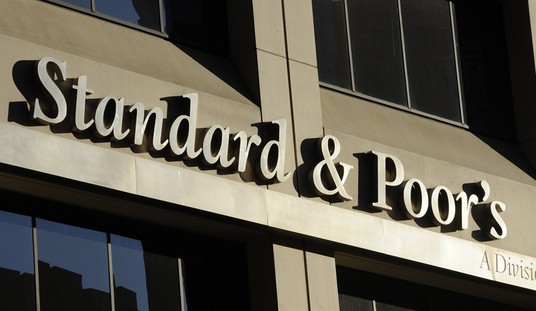A nice catch by Nate Cohn this morning. Remember when Mike Pence called on Republicans to “come home”? Well, it seems some were already in the process.

Follow the link and you’ll see that that’s Trump’s best favorability within his party since October 1st, which wasn’t long ago on the calendar but was ages ago politically. The “Access Hollywood” tape didn’t drop until a full week later. You’ll also notice that the guy hadn’t seen 70 percent since the Sept. 26 – Oct. 2 period. Not coincidentally, September 26th was the date of the first debate, which every scientific poll showed him losing. It looks like he began to slide once reaction to that was fully priced in, and then the slide continued after the tape emerged and the sexual-assault accusations began. Only now has he fully recovered. What explains that? Has Trump been doing something right lately in his messaging or is this really just Republicans gearing up mentally for the final two weeks and viewing their nominee through a rosier lens?
Clinton’s numbers with her own party offer a clue. Her favorable rating didn’t slide after the first debate, but it didn’t rise either. She was flat at 76-78 percent beginning on Sept. 25th all the way to the Oct. 14th – 20th period. But then she hit 79, then she hit 80, and she’s been in that range for the last few days — a new high for her. It may be that, with all three debates complete, Democrats have begun to appreciate Hillary more too, although I’d bet that this is mainly the same “gearing up” effect on the left. We’re at critical mass in terms of public attention to the election now. As partisan tribalism spikes, you would expect partisan favorable ratings to spike too. (Overall favorability among the wider public is still garbage for both Clinton and Trump, although more so for the latter. Hillary’s at 42/54 while Trump is at 33/63.)
Speaking of attention to the election, here’s an interesting result from Gallup:

Both parties’ interest in the race are at year-long highs, but the GOP holds a 10-point advantage. Is that significant or not? The fact that Republicans lead is probably less important than the pace at which they lead compared to previous election cycles. It’s similar to early voting. If (hypothetically) Trump leads by five points in early voting in Ohio, for example, that’s good news — unless it turns out that Mitt Romney led by 15 points in that state at this point in the cycle. That would suggest Trump is underperforming Romney in a state that Romney ended up losing, which would point to Trump losing it too. So the question is, how the two parties stack up in terms of paying close attention to the election now versus in 2012?
I can’t find any Gallup polls on that subject from precisely this point in the 2012 campaign, but I did find some ABC/WaPo polls. For the period of Oct. 20-23, 2012, fully 62 percent of Republicans said they were following the election “very closely” versus 55 percent of Democrats who said the same. Both parties are well off the pace from four years ago, but Dems are further off the pace than GOPers are. The final ABC/WaPo poll that year in November found 63 percent of Democrats following the race “very closely” versus 54 percent of Democrats who said so. Whether you read that as discouraging or encouraging is up to you. The nine-point margin is almost identical to the margin in Gallup’s polling today, and of course Obama went on to win that race. On the other hand, the fact that only 43 percent of Democrats say they’re following the race closely right now suggests either complacency, which we know Team Clinton is already worried about, or disinterest in Hillary by core Obama groups like young adult and black voters, which the larger Democratic Party is worried about. If Trump had the ground-game advantage instead of Clinton, this might be evidence of a real opportunity for a surprise. As it is, though, Clinton will likely turn out more of her lukewarm supporters than Trump will his. That’s partly how Obama made up his own “voter attention” deficit with Romney, after all.








Join the conversation as a VIP Member